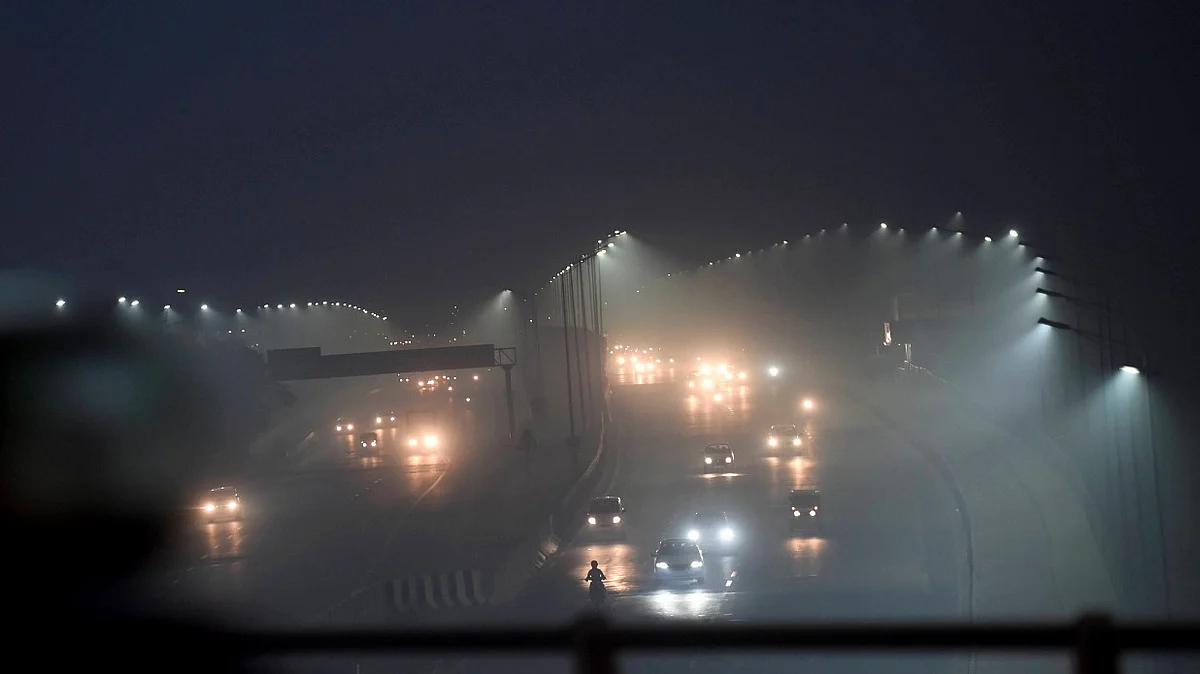As Delhi Defies Cracker Ban on Diwali, Air Quality Dips to Severe
The Air Quality Index (AQI) reached 461 and 478 in ITO and Anand Vihar respectively.

advertisement
A day after Diwali, residents of the National Capital Region woke up to dense smog as air quality dipped to the ‘severe’ category.
According to data provided by the Delhi Pollution Control Committee, the Air Quality Index (AQI) reached 461 and 478 in ITO and Anand Vihar respectively.
Early morning visuals from Delhi Geeta colony showed that smog had shrouded parts of the national capital, resulting in reduced visibility, reported ANI.
At 500, the Air Quality Index for PM 2.5 pollutant was the highest in Jahangirpuri on the northern flanks of Delhi, followed by 491 in Ashok Vihar, 475 in Patparganj, 460 in Pusa Road, 450 in Lodhi Road and 442 at IGI Airport.
While an AQI between 101 and 200 is considered moderate, anything between 201 and 300 is consider ‘poor’, between 301 and 400 is considered ‘very poor’, and anything between 401 and 500 is labelled as ‘severe’.
An AQI above 500 falls in the severe plus category. However, a Western Disturbance passing over the city is likely to bring light rain and increase wind speeds, likely improving air quality.
Residents Talk Pollution
With the air quality in red, several residents of the national capital took to Twitter to express their dismay.
Firecrackers Ban Ineffective in UP
Meanwhile, the ban on firecrackers in 13 Uttar Pradesh cities proved ineffective as people flouted the ban on Diwali night. The air quality index in Lucknow zoomed to 881 by midnight and settled at 427 on Sunday morning.
In Rajajipuram locality, the AQI was 752 on Sunday morning and Naka Hind, Qaiserbagh and Lalbagh areas recorded AQI at 450 – all in the 'hazardous' category.
Reports of firecrackers being used also came in from cities like Kanpur where AQI was 750 on Sunday morning. Other cities that defied the ban include Meerut, Moradabad and several other cities in western districts.
A senior police official said that the administration has taken note of people defying the ban and necessary action would be taken against those responsible.
(At The Quint, we question everything. Play an active role in shaping our journalism by becoming a member today.)